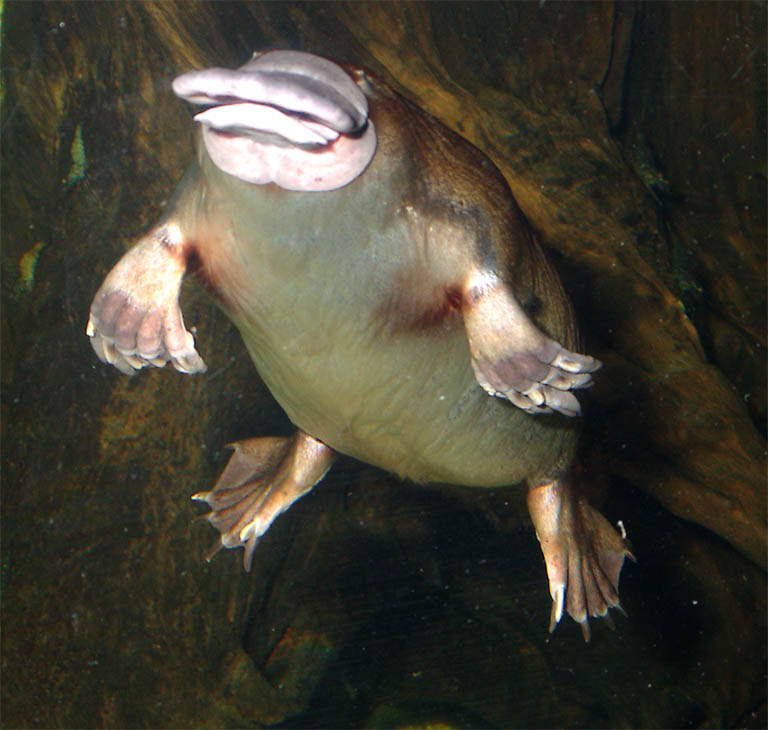When it comes to the wonders of the animal kingdom, few creatures capture the imagination quite like the platypus. This extraordinary mammal, native to Australia, is a unique blend of various animal features, including a duck-bill, webbed feet, and a beaver-like tail. However, beyond its peculiar appearance, many people are intrigued by the question: are platypuses poisonous? This article will explore the fascinating world of the platypus, delving into its biology, behavior, and the truth behind its potential venom.
Despite its adorable looks, the platypus possesses some surprising traits that set it apart from other mammals. The inquiry into whether platypuses are poisonous is not just a matter of curiosity; it has implications for understanding their role in the ecosystem and how they interact with other species. In the following sections, we will answer this question and uncover the secrets of this remarkable creature.
Join us as we navigate through the intriguing life of the platypus and discover the truth behind its potential venomous nature. From examining its habitat to understanding its unique reproductive methods, we will provide a comprehensive overview of why the platypus is more than just a cute animal—it is a vital part of Australia’s biodiversity.
What Makes Platypuses Unique?
The platypus, scientifically known as Ornithorhynchus anatinus, is a monotreme, meaning it is one of the few mammals that lay eggs instead of giving birth to live young. This characteristic alone sets the platypus apart from most mammals. Its morphological features—such as the duck-like bill and webbed feet—allow it to thrive in aquatic environments, making it an excellent swimmer.
Are Platypuses Venomous?
To answer the burning question: yes, male platypuses do possess venomous spurs on their hind legs. During the breeding season, they can deliver a painful sting to potential threats or rivals. However, it's important to clarify that this venom is not lethal to humans but can cause significant pain and swelling. The venom contains a mix of proteins that can affect the nervous system, leading to a debilitating yet temporary reaction.
What Are the Effects of Platypus Venom?
The effects of platypus venom can vary, but they typically include:
- Severe pain that can last for days
- Swelling around the sting site
- Numbness or tingling in the affected area
- Increased sensitivity to pain
Interestingly, the venom does not pose a serious threat to humans, but it can be quite distressing, especially for those who are unprepared for the intensity of the pain.
Why Do Platypuses Have Venom?
One might wonder why an animal as seemingly gentle as the platypus would need venom. The answer lies in its behavior and ecological niche. The venom serves several purposes:
- **Defense Mechanism:** The venom helps protect the platypus from predators.
- **Dominance Display:** Male platypuses may use their venom during fights with other males to establish dominance.
- **Foraging Aid:** Though not primarily used for hunting, the venom can help subdue small prey.
Are Platypuses Dangerous to Humans?
While the venomous nature of male platypuses might sound alarming, they are generally not considered dangerous to humans. They are shy and elusive creatures that prefer to avoid confrontation. Most encounters with humans do not result in stings, as platypuses are not aggressive by nature. However, it is wise to exercise caution when observing these remarkable animals in the wild.
How to Safely Observe Platypuses in the Wild?
For those interested in observing platypuses in their natural habitat, here are some tips for doing so safely:
- **Choose the Right Time:** Platypuses are most active during dawn and dusk.
- **Stay Quiet:** Loud noises can scare them away.
- **Keep Your Distance:** Do not attempt to touch or handle them.
- **Respect Their Habitat:** Avoid disturbing their environment.
Do Platypuses Have Other Unique Features?
Beyond their venomous spurs, platypuses boast other unique features that make them fascinating creatures. For example, they have electroreceptors in their bills that allow them to detect electric fields generated by their prey, such as insects and small crustaceans. This adaptation is particularly useful for hunting in murky waters.
What Is the Habitat of a Platypus?
Platypuses are primarily found in freshwater habitats across eastern Australia, including rivers, lakes, and streams. They prefer environments with abundant vegetation and plenty of cover to hide from predators. Their burrows, which they dig into riverbanks, serve as both nests and protection from the elements.
Are Platypuses Endangered?
While platypuses are not currently classified as endangered, they face threats from habitat destruction, pollution, and climate change. Conservation efforts are crucial to ensure the survival of this unique species, and raising awareness about their ecological importance is essential for their protection.
Conclusion: Are Platypuses Poisonous or Not?
In summary, the answer to the question, "are platypuses poisonous?" is a resounding yes for males, as they do possess venomous spurs that can inflict pain. However, they are not dangerous to humans unless provoked. Platypuses are remarkable creatures that play a vital role in their ecosystems, and understanding their biology helps us appreciate their uniqueness. As we continue to explore the wonders of the natural world, let us ensure that we protect these fascinating animals for generations to come.
You Might Also Like
Mastering The Art Of Beach Waves With A Flat IronDiscovering The Life Of Luxury: A Journey Through Extravagance
Paddy Dog Character: A Journey Through Whimsy And Charm
This Is A Collect Call From An Inmate Script: What You Need To Know
Discovering The Best Girls To Buy: A Unique Perspective
Article Recommendations
- Jessica Samko Instagram
- Brad Renfro Son
- Alex Landi Partner
- Hailee Steinfeld
- Norah Odonnell Weight Loss
- Andrea Soros
- Alicia Keys P Diddy
- Chameleon John Smith Dateline
- Noodlemagazine
- What Happened To Tia Mowry Daughter


